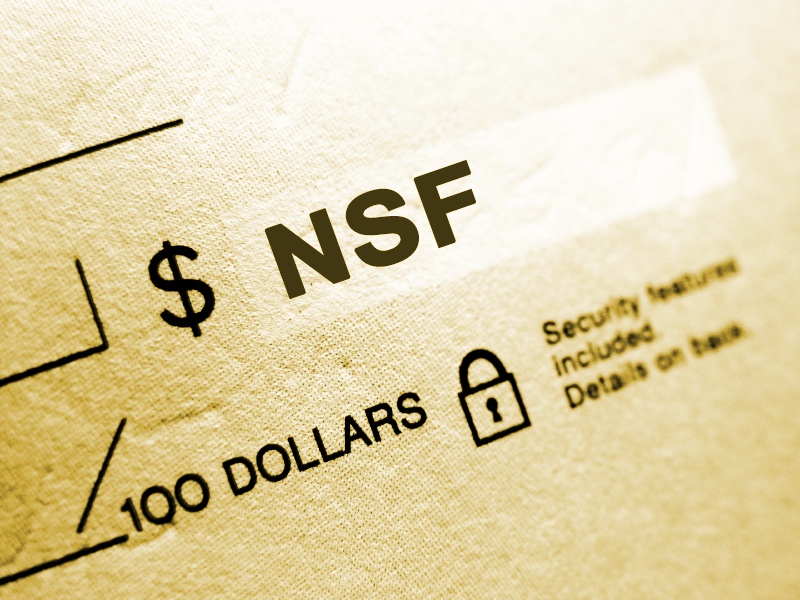Sooner or later, direct deposit recalls and NSFs (non-sufficient funds) trip up just about every payroll provider. And while a NSF on taxes or fees is usually small, a direct deposit NSF can cause big headaches for your firm.
In most cases, the payroll deposit from the client is returned for non-sufficient funds after you've already funded the payroll and employees have been paid. The payroll service company's bank immediately takes the funds, leaving you with the shortfall.
If this happens to you, it's important to carefully follow National Automated Clearing House Association (NACHA) rules – you'll find them outlined in Subsection 4.3.3 of NACHA's operating rules and guidelines. A violation can strip you of your ability to originate direct deposit transactions, essentially putting your payroll operation out of business.
The best solution, of course, is to prevent NSFs and recalls from happening in the first place. I've put together some guidelines to help you do just that:
- Never offer direct deposit to clients with poor credit.
- Establish a clearly defined credit policy from the start. For example, you can state from the get-go that you don't allow direct deposit for clients with outstanding liens, judgments, current write-offs, or similar credit problems. This greatly reduces your liability and avoids awkward client situations in the future.
- Never allow direct deposit for clients that can't provide a specific street address for their business.
- Never allow direct deposit to clients that can't provide you with a land line business phone number.
- Never allow direct deposit to clients that can't provide you with a business website and business email (don't accept anonymous email services like Gmail or Yahoo).
- Never allow direct deposit on first payrolls for clients that tell you they have to leave their prior processor and need to run a payroll ASAP. This is a major red flag.
- Always prenote client bank accounts. This will cause a delay of six banking days before you can send a live transaction (this will change to three banking days on September 19, 2014). Another benefit of prenoting is that you'll be able to see if the client has a debit blocker on their account. A debit blocker will cause an automatic return of any direct deposits.
- Consider joining your local NACHA chapter. This will avail you of the latest NACHA rules and regulations and keep you current on all automated clearing house updates. NACHA membership also gets you a liaison who you can approach with any issues and concerns.
When it comes to direct deposit, I've found that it pays to err on the side of caution. Your client should understand this – after all, your business could be on the line in the event of a problem. If they raise a fuss, it's all the more reason to proceed with care.
————–
James Paille, CPP, is the Director of Operations for Thomson Reuters myPay SOlutions. He is a member of the APA's Board of Directors and National Speakers Bureau, and chairs the CPP Certification Review Panel. He holds a BS in Accounting from St. John Fisher College in Rochester, NY.
Thanks for reading CPA Practice Advisor!
Subscribe Already registered? Log In
Need more information? Read the FAQs
Tags: Payroll




